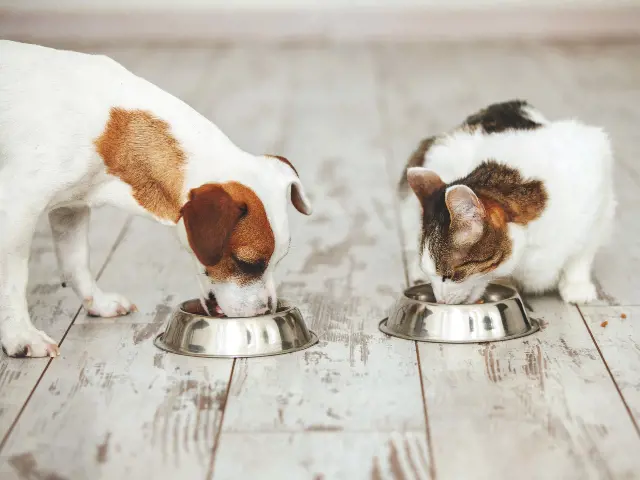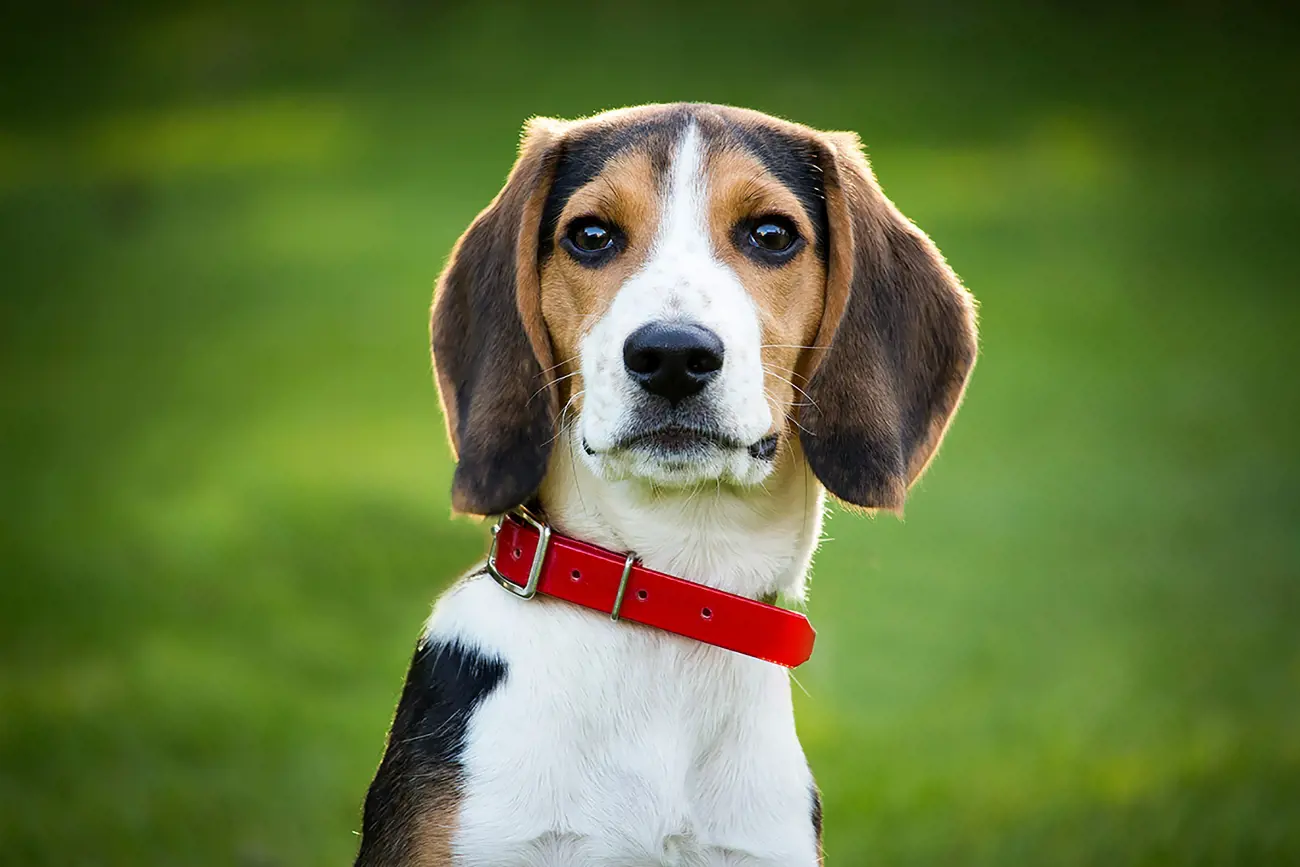What summer foods can my dog eat?
9th August, 2023

Summer is here, and while we humans indulge in refreshing treats to beat the heat, it's only fair that our furry friends get to enjoy some summer foods too! But before you start sharing your ice cream cone with your pup, it's important to know which summer foods are safe for dogs to eat.
In this guide, we'll explore a variety of delicious and nutritious treats that will keep your four-legged companion happy and healthy all summer long. From watermelon slices to frozen yogurt, there are plenty of options to keep your dog cool and satisfied during those scorching hot days.
We'll also discuss the foods to avoid, as some summer favourites can be harmful to our canine friends. So, let's dive in and discover the perfect summer foods for your dog, ensuring they have a wagging tail and a satisfied tummy throughout the season!
Dog diet: Do dogs eat less during summer?
You've probably noticed that during the hot summer months, your dog seems to eat less. It's not your imagination. Just as humans tend to eat less and crave lighter foods during the heat, dogs also often show a decreased appetite.
The heat can make heavy meals uncomfortable, and your dog may naturally eat less to avoid that discomfort. This doesn't necessarily mean your dog is unwell; it's merely a natural response to the weather.
However, it's essential to ensure your furry friend is still getting all the essential nutrients they need. Even though they may eat less, the quality of what they eat becomes even more critical.
It's also important to note that while some dogs eat less in the summer, others may not change their eating habits. Each dog's body is different and may react to the heat differently.
So what can you do to make sure your dog is eating right this summer? The answer lies in understanding what foods are safe for your dog to eat.
Introduction to summer foods for dogs
Summer is a great time to introduce some variety into your dog's diet. With an abundance of fresh produce available, you can include some healthy and tasty options in your dog's meals. But before you start sharing your summer treats with your dog, it's advised to know what foods can your dog eat.
Not all human foods are safe for dogs. Some foods can be toxic and even deadly for dogs. Others, while not exactly harmful, are not necessarily healthy for dogs and should be avoided. It's always best to consult with your vet before introducing any new foods into your dog's diet.
Keep in mind that even safe foods should be given in moderation. Too much of a good thing can upset your dog's stomach or lead to weight gain. Always monitor your dog's reaction to new foods and adjust their diet accordingly.
What summer foods can my dog eat?
Many of the foods we enjoy during the summer are safe for dogs to eat. Some of these foods can even provide additional health benefits for your dog.
For instance, lean meats like chicken and turkey are good sources of protein for your dog. Just make sure to remove any skin and bones before feeding them to your dog. Fish like salmon and sardines can also be a healthy addition to your dog's diet, providing essential fatty acids that support skin and coat health.
Then there are fruits and vegetables. Many fruits and vegetables are safe for dogs to eat, and they can offer a range of health benefits. However, remember that not all fruits and vegetables are safe for dogs.
Let's take a closer look at some safe fruits and vegetables for your dog this summer.
Fruits your dog can enjoy during summer
Fruits can be a refreshing treat for your dog during the hot summer months. Apples are a good choice, providing dietary fibre and vitamin C. Just remember to remove the seeds and core before feeding them to your dog.
Berries like blueberries and strawberries are also safe for dogs. They're packed with antioxidants, which can help to maintain your dog's overall health. Bananas are another good option, providing potassium and essential vitamins.
Remember, while these fruits are safe for dogs, they should still be given in moderation. Too much fruit can lead to digestive upset or weight gain. Also, make sure to wash all fruits thoroughly to remove any pesticides or chemicals before giving them to your dog.
Vegetables your dog can eat during summer
Just like fruits, many vegetables are safe for dogs to eat. Carrots are a great choice, as they're low in calories and high in fibre and vitamins. Cucumbers can also be a refreshing treat for your dog, especially on hot days.
Peas are another safe vegetable for dogs. They're a good source of vitamins A, K, and B, as well as iron and zinc. Sweet potatoes are also safe for dogs and can provide dietary fibre, vitamin B6, and vitamin C.
As with fruits, make sure to wash all vegetables thoroughly before feeding them to your dog. And remember, moderation is key.
Cooling foods for dogs during hot temperatures
During the scorching hot summer days, it's essential to keep our pets cool and comfortable. Just like us, dogs can also feel the effects of the sweltering heat, and it's suggested to ensure they stay hydrated and refreshed.
One way to do this is by incorporating cooling foods into their diet. These foods not only provide essential nutrients but also possess natural cooling properties that can help lower their body temperature.
- Watermelon: This juicy fruit not only tastes delicious but also contains high water content, which aids in hydration. Watermelon is also rich in vitamins A and C, which contribute to a healthy immune system.
- Cucumber: This crunchy vegetable is made up of 95% water, making it an excellent choice for staying hydrated. Additionally, cucumbers are low in calories and packed with beneficial nutrients like potassium and magnesium.
- Coconut water: Not only is coconut water refreshing, but it also contains electrolytes that can help replenish lost fluids. It's important to note that when offering coconut water to your dogs, make sure it doesn't contain any added sugars or artificial flavours.
Watermelon, cucumber, coconut water, and frozen treats are all excellent options that possess natural cooling properties and can help keep your furry friend comfortable and refreshed in the hot weather.
Remember to always consult with your veterinarian before introducing any new foods into your dog's diet to ensure they are suitable for their specific needs and health conditions.
Summer treats for dogs - DIY recipes
If you're feeling creative, you can make your own summer treats for your dog. One simple idea is to freeze pieces of fruit or vegetables in ice cube trays. These ice cold foods can be a refreshing and healthy treat for your dog on hot days.
You could also try making your own dog ice cream. Mix some plain yogurt with a safe fruit like bananas or blueberries and freeze it in an ice cube tray. Your dog will love this cool treat!
Remember, homemade treats should still be given in moderation. Even though they're made with safe and healthy ingredients, too many treats can lead to weight gain.
Foods to avoid giving your dog during summer

While there are many summer foods that are safe for dogs, there are also some that should be avoided.
- Grapes and raisins are toxic to dogs and can lead to kidney failure.
- Likewise, avocados contain a substance called persin, which can be harmful to dogs.
- Chocolate is another food to avoid. It contains theobromine, which is toxic to dogs. Even small amounts of chocolate can be dangerous.
- Also, while it may be tempting to feed your dog a bone from your summer BBQ, this can be dangerous. Cooked bones can splinter and cause choking or damage your dog's digestive system.
Consulting with your vet about your dog's summer diet
While it's great to introduce some variety into your dog's diet, it's always best to consult with your vet first. They can provide specific recommendations based on your dog's age, size, breed, and overall health.
Your vet can also help you understand how much food your dog should be eating. While it's normal for dogs to eat less during the summer, a significant decrease in appetite could be a sign of a health problem.
Remember, a balanced diet is essential for your dog's health. So while it's okay to give your dog some summer treats, these should not replace their regular meals.
Conclusion
Summer can be a great time to introduce some new foods into your dog's diet. Many summer foods are safe for dogs, and can provide health benefits. But it's always important to remember that not all human foods are safe for dogs, and any new dog foods should be introduced gradually and in moderation.
Always consult with your vet before introducing any new foods into your dog's diet. They can provide guidance based on your dog's specific needs.
Remember, your dog's health and well-being should always be your top priority. To get a dog insurance quote for your furry friend you can get a quote through our website.
If you would like to talk to one of our pet insurance team, you can get in touch with us on 0330 102 5748. Protect your dog's health this summer and beyond with the right diet and the right insurance coverage.
Helpful Pages
Recent Posts

Why do Great Danes bury their heads?
12/03/25
Find out more about Beagles
28/02/25Pet Insurance Quote
- 98% claims paid *
- Claims paid directly to vets
- 24/7 vet video consultations
- Interest free monthly payments


